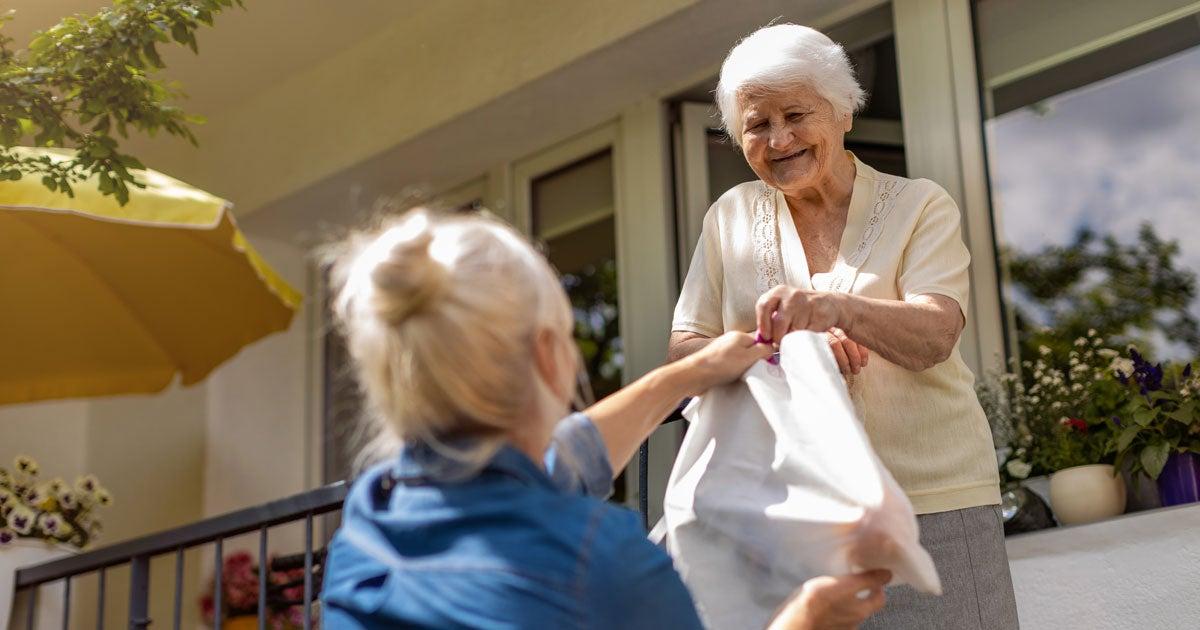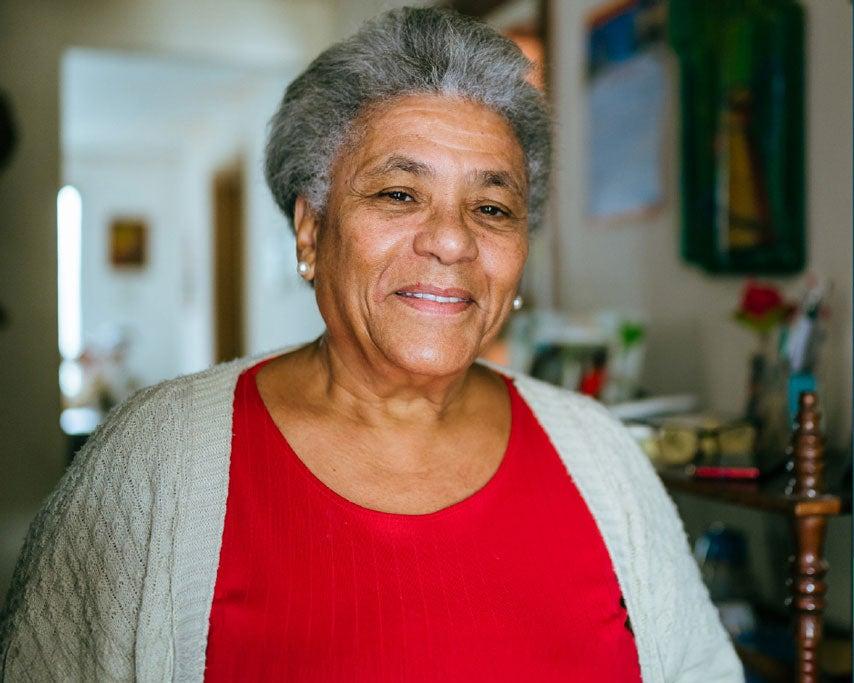The Role of Community Health Workers in Fighting Obesity and Chronic Disease
6 min read

Chronic disease such as obesity and diabetes is more prevalent in people of color, often due to socioeconomic factors that limit access to nutritious foods and healthcare. A greater number of Black and Hispanic adults live with fair or poor health across the U.S. compared to white adults, which only worsens as they age. Many lack equitable access to health insurance to cover the full scope of treatment options for their conditions, which can range from pharmacotherapies to behavioral interventions and surgery. What support systems exist to help older adults and caregivers navigate these disparities?
In a growing number of underserved communities, community health workers (CHWs) are playing a key role in addressing social determinants of health and improving quality of life for those living with obesity and other chronic diseases.
What is a Community Health Worker?
A community health worker (CHW) is an individual who acts as a liaison between community members and medical and social services. They help people find and connect with healthcare providers, navigate the healthcare system, and access the resources they need for daily living (e.g. food, supplies, housing). CHWs may also provide outreach, education, social support, and advocacy for patients with chronic disease.
We recently captured the views of two experts who are working to promote this innovative approach in their own communities as well as in other communities across the U.S.
Denise LaRue: Harris Health System
Denise LaRue is the Director of Care Integration, Population Health at Harris Health System in Houston, Texas. Harris Health runs a Community Health Worker Home Visit Program, which aims to bridge the gap between the community and clinical practice through patient home visits.
According to LaRue, older adults—especially those in minority communities—face unique challenges when it comes to combating chronic disease. “Many of these folks are isolated,” she explains. “They are stuck at home with no companion, no internet, and no way to get around. Transportation becomes an issue. For those who can’t get to the doctor, we collaborate as a system to come up with a transportation strategy.”
Food insecurity is another major problem confronted by Harris Health CHWs, with nearly 23% of Americans living with obesity reporting a lack of access to nutritious foods. The link between food insecurity and obesity has grown stronger in the last 20 years. LaRue recounts one story where a woman ate rice and beans for every meal while her husband was out of town for work. She was stuck at home alone with no transportation and didn’t know how to sign up for Meals on Wheels. CHWs were able to connect the woman to the resources she needed to stock her kitchen with a variety of healthy food options.
One of these resources is the local food pharmacy, which is a food prescription program established through a partnership between Harris Health and the Houston Food Bank. The food pharmacy is designed to enhance access to nutritious fare for patients dealing with food insecurity and managing chronic disease. “We’re screening patients for food insecurity at the primary care site,” explains LaRue. “Then we proactively reach out to them. With home visits and the food pharmacy, we are in a space that allows us to personalize and tailor the education. We actually look in their pantries and have a very real conversation. If they’re eating large portions, we teach them how to eat smaller portions. CHWs provide some insights, but we really want them to serve as the air traffic controller that connects patients with essential resources, whether it’s a dietitian or patient educator.”
Since issues such as obesity carry stigma, LaRue says it’s important for CHWs to ask questions in a compassionate, sensitive way—this helps them build trust and a rapport with the patient. “A community health worker must not only be savvy about community resources, they must also have fantastic interpersonal and communication skills,” she says.
“It’s not about being nosy. We care about patients’ health, and it’s our goal to improve it. We want to help them connect the dots.”
Scott Tornek: Penn Medicine Center for Community Health Workers
Philadelphia is another city that’s demonstrating the positive impact CHWs can have on underserved communities. Just ask Scott Tornek, Chief Strategy Officer for Penn Medicine's Center for Community Health Workers. Tornek and his team developed IMPaCT, a standardized system for CHW recruitment, training, and care. During a panel session at NCOA’s Age+Action conference in June, Tornek explained that IMPaCT has been tested in three randomized controlled trials, where it demonstrated tangible improvements in chronic disease control, mental health, and quality of patient care while reducing hospitalization duration by 65%. At least a third of the patients in this program are over 65.
IMPaCT is grounded in the areas of need that Tornek and his team identified at the outset of the program. When they asked patients in the Philadelphia area what they need to improve their health, the biggest response was the need for psychosocial support and help with things like behavior change, food and housing, and navigating the health insurance system.
“The other side of obesity and chronic disease is the social determinants of health,” Tornek explains. “Our community health workers and others around the country are working with patients on issues such as food insecurity, homelessness, struggling to lose weight, and smoking cessation.”
Based on what a patient needs from a psychosocial perspective, IMPaCT community health workers engage with them over a set period of time to achieve those goals and then connects them to longer-term resources. “If we are talking about weight loss, their goal could be playing sports or going to the gym,” says Tornek.
“The CHW is quarterbacking that relationship. They’re integrating with the clinicians. Sometimes simple things, like just getting outside and changing one’s behavior, can be a catalyst for much bigger change.”
For community health workers, the future looks bright
The CHW workforce is still gaining recognition, and there are certainly kinks to iron out. According to LaRue, community health workers are often grant-funded, and not reimbursable by Medicaid. Other issues include high staff turnover, lack of infrastructure to support the program, and lack of integration with clinics and healthcare providers.
However, the tides are turning. The IMPaCT model addresses common CHW pitfalls through specialized hiring and training practices and health system integration. This program is scalable and can be tailored to different diseases and patient populations.
Training for CHWs is becoming more standardized, with state-level certification programs now offered in 12 states. Another exciting new development is the National Association of Community Health Workers (NACHW), launched in 2019 to help support and strengthen the profession.
“Community health workers represent the next wave of thinking about how we can work together,” says LaRue. “It’s not just about the direct healthcare-patient relationship. It’s about creating interconnectedness with valuable support resources that already exist in the community.”




